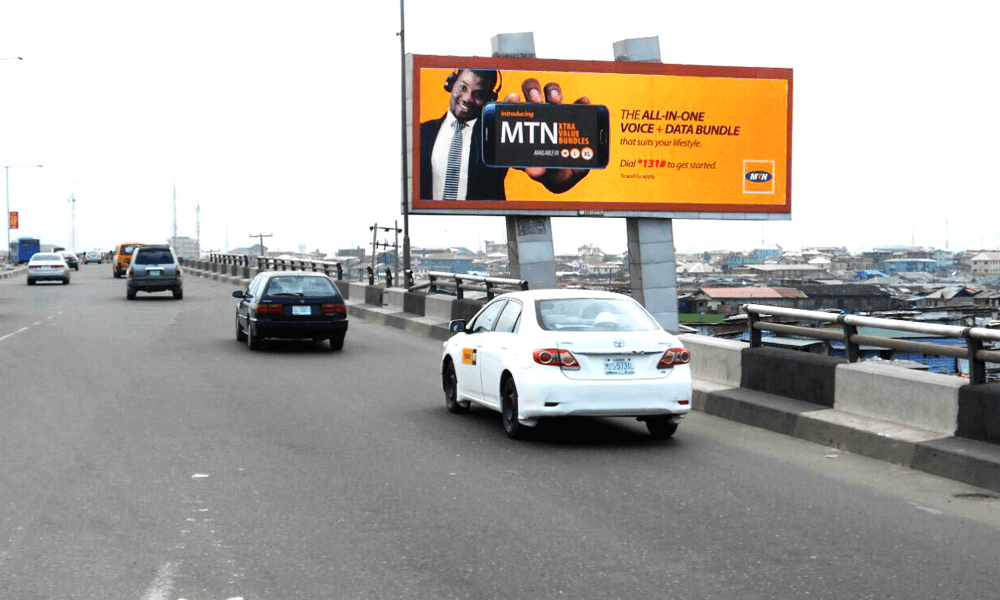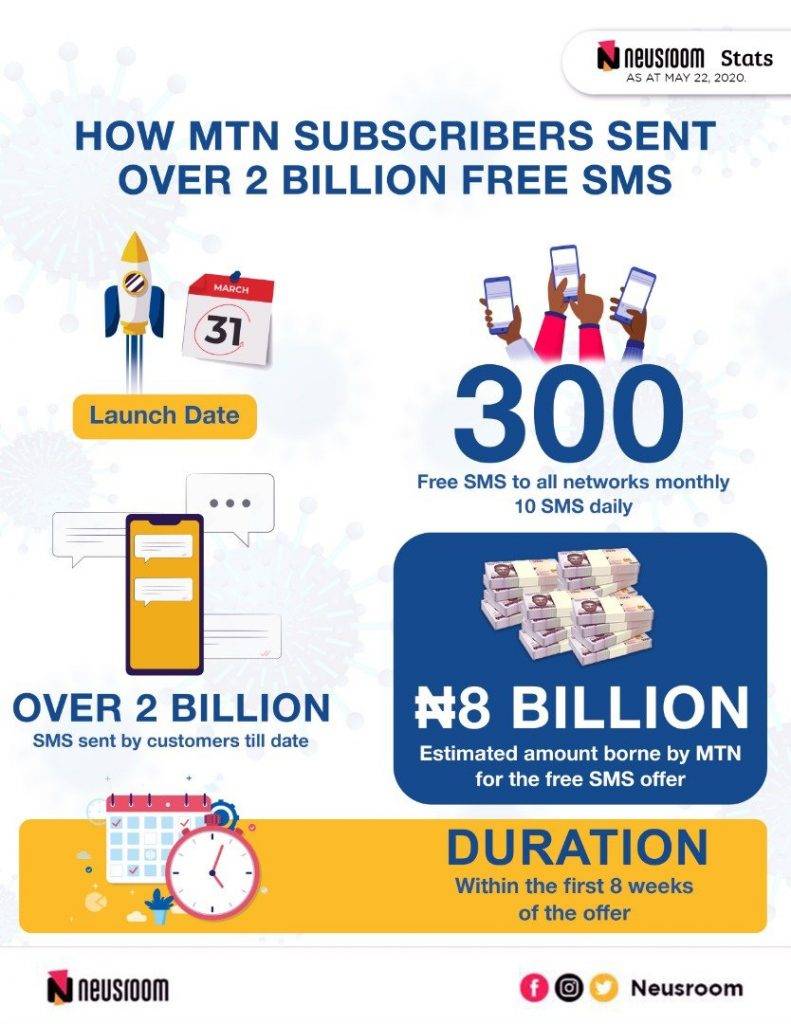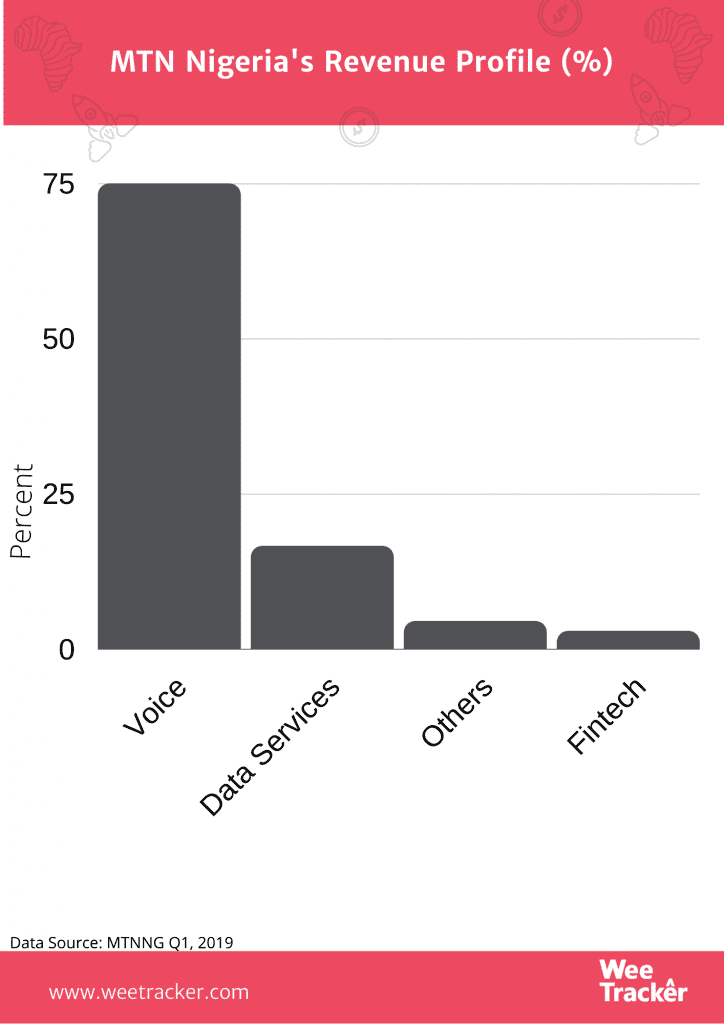COVID-19: MTN Got Flak For SMS Freebie In Nigeria But The Joke’s On The Trolls

The MTN freebie kerfuffle
On April 1, 2020, MTN Nigeria, the largest telco in Africa’s most populous nation, announced a generous “free SMS offer.” This is part of its wider #YelloHope initiative, aimed at cushioning the impact of COVID-19.
We understand how important it is to keep in touch with loved ones during this period. Now you can with FREE 300 SMS to all networks. #StaySafe #StayConnected pic.twitter.com/85jktTEveh
— MTN Nigeria (@MTNNG) April 1, 2020
However, the telco’s gesture didn’t go down well with many. MTN Nigeria got clowned and trolled in social media circles for “extending a hand of kindness that would have meant something if this was 2005.”
We need data to work effectively from home and stay abreast of new updates online
Take your SMS and reduce the price of data
— Blessed Beyond Measure (BBM) (@Drmuzoic) April 1, 2020
At least, that was the feeling from concerned individuals who reckoned that free/highly-subsidized internet bundles and/or calls would have been a better gesture. The calls for free data were especially loud.
We hardly send sms, we want data.
SMS to do what??— Ajayi Adedoyin (@ajayidoying) April 1, 2020
With over 73.5 million subscribers in Nigeria as of March 2020, MTN accounts for 38.93 percent of the country’s GSM market share. Nigeria is also MTN’s largest market, single-handedly accounting for one-third of the South African company’s revenue.
To support the fight against COVID-19, MTN offered, among other things, 300 free SMS (to any network) to each of its 73 million+ subscribers every month for the next 3 months, capped at 10 SMS per day.
Who got the last laugh?
The telco must have been surprised at the flak it got for basically accepting to pick up a significant bill on behalf of Nigerians.
The reason for the criticism? Well, it’s tied to the idea that the free SMS offer is a farce; a good-natured gesture in its own right, but one that is moot because, apparently, SMS is now outdated and obsolete in “2020 internet-driven Nigeria.” In simpler terms, “no one cares about SMS” was the message behind the complaints.
Data would have been better or even appreciated, SMS is outdated, reduce the price of subscription even if you can’t make it free, be considerate during this trying time
— Hafsah? (@Amally_A) April 1, 2020
…This Life we need data more than sms. MTN Nigeria is just playing with Nigerians.
Why won’t they gift their customers data and phone call airtime?
When they know Nigerians rarely send SMS these days because there are various messaging and social media apps for texts.— Giovanna (Screengoddez™) (@screengoddez) April 1, 2020
But two months and NGN 8 Bn later, it now seems clear that the above premise is flawed and MTN Nigeria had it figured out all along. After being clowned initially, it appears the telco is now having the last laugh.
Within the first 8 weeks of rolling out the offer, MTN Nigeria says over 2 billion text messages have been sent, costing over NGN 8 Bn (USD 20.6 Mn); some measure of vindication. The math would suggest an average of 27 texts sent per subscriber since the service was launched.

It turns out that while 2020 Nigeria has unmissable online visibility and footprint, a greater portion of the country’s population is still stuck outside the loop. And these are probably the ones the telco had in mind when it rolled out the offer.
What the numbers say
It turns out that the SMS freebie has actually been a hit, especially outside of urban Nigeria. While many trolled MTN Nigeria for offering free texts instead of free internet access, many more have been making the most of their daily free texts.
Here’s the gist: Over 50 percent of the subscriber base of the telco with the largest coverage and subscriber base in Nigeria is in rural/semi-urban areas, and smartphones and other internet-enabled devices are not exactly part of daily life in those places. These are the people who still rely heavily on SMS and voice calls to communicate.
And it gets even more interesting when one looks at industry figures which estimate the number of smartphone users in Nigeria to be between 25-40 million.
In the best-case scenario, this would imply that less than half the number of GSM subscribers in Nigeria are using phones that can access the internet — little wonder phone makers still rake in huge sums off of feature phone sales in Nigeria.
Per data from the Nigerian Communications Commission (NCC), there are currently 96 million GSM subscribers in Nigeria, of which 41.6 percent are smartphone users. It goes to show that, effectively, more than half of the country’s phone users would have been neglected had MTN Nigeria chose internet over SMS.
As a matter of fact, while MTN Nigeria’s most recent financial report reflected a spike in revenue from internet services, the numbers did also show that voice revenue is still head and shoulders above all others even though it dipped somewhat during the period under review.
Indeed, data revenue is still a relatively small part of MTN’s revenue. In Q1 2019, it accounted for only 16.6 percent of the company’s earnings. Although it posted growth of 59.2 percent in the first three months of 2020, it still only represents 22 percent of the telco’s earnings so far this year.

Voice traffic remains MTN’s biggest revenue source. In Q1 2019, it represented 75.9 percent of all its earnings. And in 2020, phone calls brought in over NGN 227 Bn during the first three months of the year, representing over 68 percent of the company’s total revenue.
As it stands, the “4G-using urban reality” that many have in mind is not Nigeria’s reality at all, as the numbers indicate. In fact, broadband penetration (3G/4G) currently stands at 39.9 percent. Despite the perceived proliferation of internet services, voice services still account for over 60 percent of revenues for telecom companies in Nigeria.
So, it turns out MTN’s decision to make SMS the key pillar of its contribution was actually deliberate and based on hard-to-ignore numbers.
Featured Image Courtesy: NewCrystalCommunications